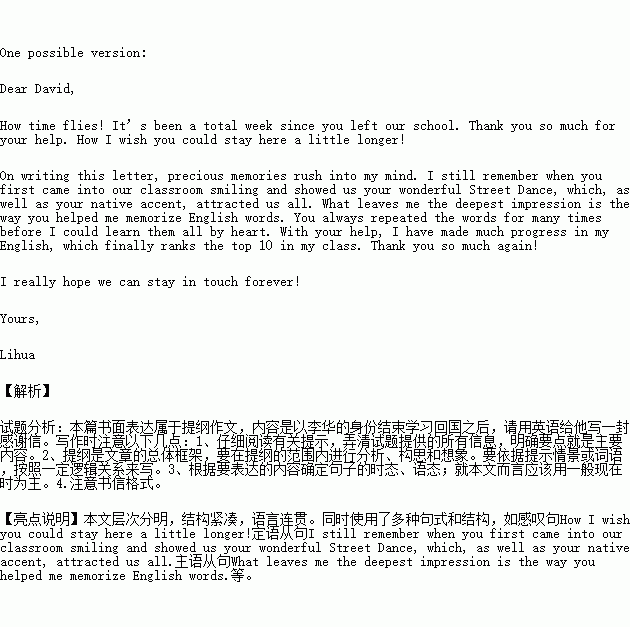题目内容
假如你是李华,在你校学习的美国交换生David和你成为了好朋友,并且在他的帮助下你的英语学习取得了很大的进步。在他结束学习回国之后,请用英语给他写一封感谢信。内容应包括:
1. 表达思念;
2. 感谢帮助;
3. 希望保持联系。
注意事项:
1. 不得透露真实姓名和学校;
2. 词数:100左右;
3. 开头和结尾已写出,不计入词数。
Dear David,
How time flies! It’s been a total week since you left our school. _______________________________________________________________________________
_______________________________________________________________________________
_______________________________________________________________________________
_______________________________________________________________________________
_______________________________________________________________________________
_______________________________________________________________________________
_______________________________________________________________________________
_______________________________________________________________________________
_______________________________________________________________________________
_______________________________________________________________________________
Yours
Lihua
 小学教材全测系列答案
小学教材全测系列答案 小学数学口算题卡脱口而出系列答案
小学数学口算题卡脱口而出系列答案 优秀生应用题卡口算天天练系列答案
优秀生应用题卡口算天天练系列答案 浙江之星课时优化作业系列答案
浙江之星课时优化作业系列答案
